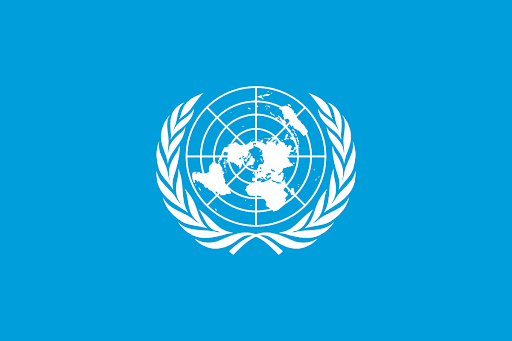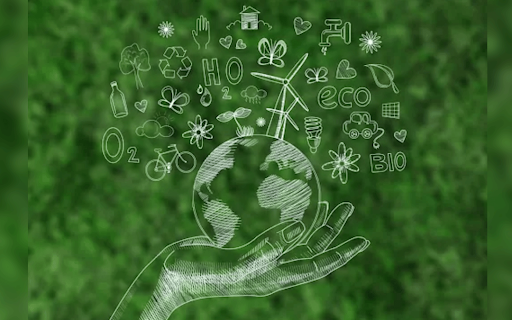
As 2025 draws to a close, the world’s spotlight swings to Belém, Brazil—host of the landmark UN COP30 climate summit. Leaders from nearly every nation have gathered not for routine diplomacy, but to confront the escalating environmental crises shaping our future. From rapidly intensifying climate impacts to the race to finance a just transition, COP30 is set to become one of the most pivotal climate meetings yet.
In this blog, we break down the biggest issues on the table, what’s at stake for people and the planet, and the key developments to watch as the conference unfolds.
This year’s climate conference has been held in Belém, Brazil, commencing on November 10th and finishing on the 21st of November. The conference will be focusing on the next steps to limit global warming and this conference is 10 years after the Paris climate agreement where countries pledged to try and restrict global temperature rises to 1.5?, a limit which, confirmed by the UN, is ‘virtually impossible’. COP30 is designed to be a carbon neutral event with emissions counted, offsetting completed and participants encouraged to know their personal travel emissions and offset them. Many world leaders have chosen to be absent from COP30 this year, including the US president Donald Trump after the country abandoned promises to the rest of the world that it would work towards controlling their greenhouse gas emissions in order to battle climate change.
UN’s 6 Key Discussion Topics at COP30

- Control global warming
Countries have discussed how to close the gap between their current climate pledges and what is needed to limit global temperature rise. - Support for countries and communities to adapt to climate change
Countries and communities are now becoming more vulnerable to extreme weather patterns, this conference discussed how countries will help to build further resilience to these urgent matters through efforts such as disaster planning and ecosystem protection. - Delivering on climate finance promises
Financial institutions and wealthy countries have outlined the mobilisation of monetary funds to support developing countries to reduce their emissions and mitigate potential impacts. - Driving innovation and efficient solutions
COP30 will highlight scalable, sustainable and creative actions. - Ensuring transitions are fair and inclusive
Creating the move to clean energy to be beneficial for all. Belém Action Mechanism for Just Transition: this is a plan aimed to support the creation of new jobs and train workers for green industries. - Revive global cooperation
As formally seen at the Paris Agreement, COP30 had a goal to rekindle the same sense of urgency presented in 2015. An urge for real progress from promises made by countries regarding climate action.
Summary of Key discussions throughout COP30
One of the early points of controversy came from the European Union. Before the conference even began, the EU announced that it would be weakening parts of its climate targets—raising concerns about its overall ambition and credibility at the negotiations. This decision sparked debate among delegates and civil society groups, many of whom questioned whether major emitters were truly prepared to lead by example.
 Leaning more towards the side of optimism, leaders around the world have launched a now Global initiative on Jobs and Skills so that people can be placed at the center of climate action. Aiming to create 375 million and 280 million jobs related to adaptation over the next decade, investing in green skills, workforce development and inclusive economic growth.
Leaning more towards the side of optimism, leaders around the world have launched a now Global initiative on Jobs and Skills so that people can be placed at the center of climate action. Aiming to create 375 million and 280 million jobs related to adaptation over the next decade, investing in green skills, workforce development and inclusive economic growth.
Despite pockets of progress, many of the new climate plans submitted by countries—known as Nationally Determined Contributions (NDCs)—are still seen as insufficient to meet global temperature goals. Negotiators stressed that the upcoming decade will be decisive, and stronger NDCs will be essential for driving real progress rather than incremental change.
Environmental and Indigenous groups continued to raise alarms about the expanding influence of mining corporations, especially as demand grows for minerals used in renewable technologies. They called for more robust protections to prevent ecological damage, human rights violations, and land degradation—issues that are increasingly central as countries scale up low-carbon energy systems.
Discussions for a fossil fuel phase-out have dominated the COP30 agenda. Several countries are pushing for a road map away from fossil fuels, with wide support from rich and poor nations, but China, India and other Arab countries are opposed. They argued that their development needs and energy security must remain priorities. This divide once again highlighted the ongoing tensions between ambition and practicality in global climate diplomacy.
Artificial intelligence (AI) has become a centralised topic at COP30 this year. Some countries and large tech companies have argued that it has the potential to support climate resilience. However environmental groups have warned of the large consumption of electricity and water that is used to run AI and data centres. The central question remains: Can the world harness AI’s benefits without exacerbating the very problem it aims to solve?
Another key area of negotiation was adaptation finance. With climate impacts intensifying, particularly in vulnerable regions, countries made strong calls to scale up funding and ensure it is more predictable, accessible, and responsive to real-world needs. Many leaders emphasized that resilience efforts—such as strengthened infrastructure, early-warning systems, and community-led adaptation—cannot move forward without adequate financial support.
Finally, COP30 saw increased momentum for climate-resilient food systems. Delegates discussed the need to transform global food production, restore degraded lands, and support family farmers who are often on the front lines of climate impacts. Food security, soil health, biodiversity, and sustainable agriculture were all identified as pillars of a more resilient global system.
COP30 is turning out to be a potential pivotal moment for climate resilience and in battling the world’s climate crisis. The real question is, will these discussions bring about concrete change in societies, or will these key proposals become diminished?






